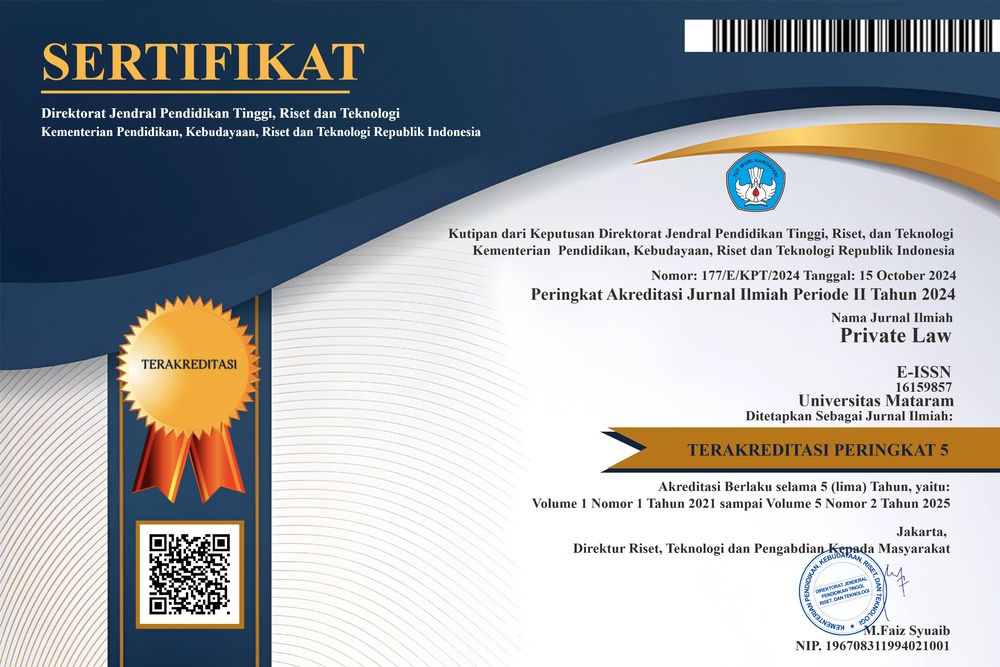Focus and Scope
Private Law is a peer-reviewed journal dedicated to the study and development of private law in national, regional, and international contexts. The journal provides a platform for scholarly discussion and critical analysis of various branches of private law, including but not limited to:
- Contract Law:
Contract law governs agreements between individuals or businesses. It sets the rules on how contracts are made, what obligations the parties have, how contracts can be enforced, and what happens if a party fails to fulfill their agreement (breach of contract).
- Tort Law:
Tort law deals with situations where one person's behavior causes injury, damage, or harm to another person. It allows victims to claim compensation for losses caused by others' negligence, intentional harm, or strict liability.
- Property Law:
Property law regulates ownership, use, and transfer of property (both real estate like land and buildings, and personal property like cars or jewelry). It defines the rights and duties of property owners.
- Family Law:
Family law focuses on legal issues involving family relationships, such as marriage, divorce, child custody, adoption, and guardianship.
- Inheritance Law:
Inheritance law (also called succession law) governs how a deceased person's assets are distributed among heirs or beneficiaries. It includes rules for wills, trusts, and intestate succession (when someone dies without a will).
- Commercial Law:
Commercial law governs business and commerce. It includes laws on trade, sales, agency, banking, insurance, and other commercial activities.
- Corporate Law:
Corporate law deals specifically with the formation, operation, and regulation of companies and corporations. It defines the rights and obligations of shareholders, directors, and managers.
- Consumer Protection Law:
Consumer protection law ensures the rights of consumers are respected, protects them from unfair practices, and promotes fair trade, competition, and accurate information in the marketplace.
- Intellectual Property Law:
Intellectual property (IP) law protects creations of the mind, such as inventions, literary and artistic works, designs, symbols, names, and images.
- Private International Law:
Private international law, also called conflict of laws, deals with legal disputes that have a cross-border element. It determines which jurisdiction's laws apply and how judgments are recognized and enforced across countries.
- Health Law:
Health law governs the legal aspects of healthcare, medical practice, and public health. It covers patient rights, medical ethics, hospital regulations, medical malpractice, bioethics, and access to healthcare services. Health law aims to protect patient welfare while balancing the rights and responsibilities of healthcare providers and institutions.
- Labor Law:
Labor law regulates the relationship between employers, employees, and labor organizations. It includes workers' rights, employment contracts, workplace safety, collective bargaining, wage laws, and protection against unfair dismissal.
The journal welcomes contributions that explore theoretical foundations, comparative studies, legislative developments, case law analysis, and the practical implications of private law. Interdisciplinary approaches that intersect with economics, sociology, technology, and policy are also encouraged.
Private Law aims to foster dialogue between academics, practitioners, policymakers, and students, advancing the understanding and application of private law principles to contemporary legal challenges.











